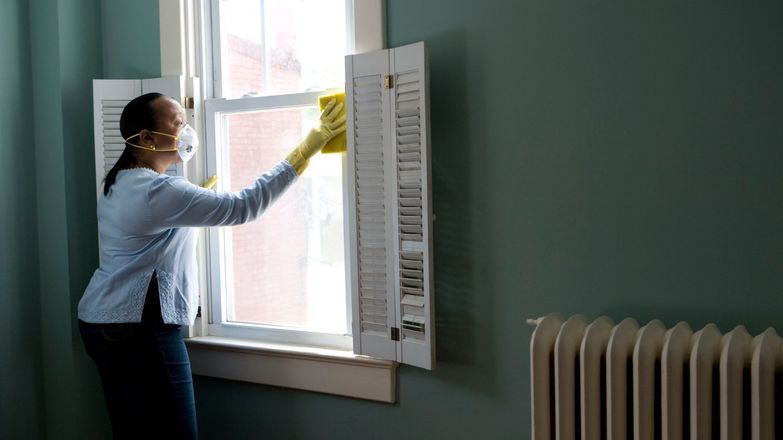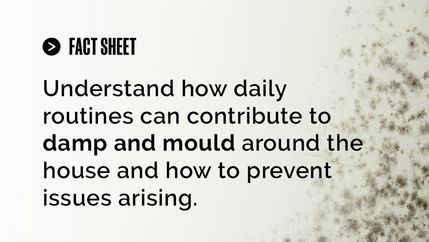
A key role for qualified property agents
Propertymark is in contact with the Secretary of State for Housing, Communities and Local Government, Angela Rayner MP, to clarify plans to extend Awaab’s Law to the private rented sector (PRS) and to promote the value that agents have in ensuring consumers are protected, driving up standards, and stamping out bad practice.
We support greater regulation of the PRS and the wider housing sector and believe that consumers should receive a professional service from a qualified property agent, whether buying or selling a home or property or renting. Mandatory qualifications should sit alongside a statutory code of practice, registration and licence to operate.
Getting ahead of the problem
The guidance sets a clear expectation that property managers are proactive in identifying and reducing the risk of D&M before it poses a health risk to their tenants.
This includes understanding the condition of each property and putting preventative measures such as improved ventilation, energy efficiency, and building alterations, in place. Agents should implement clear processes to document, manage, and act on reports of D&M, and identify common issues and trends to inform further interventions.
Working with contractors and other professionals
It is important for agents and landlords to consult or instruct qualified professionals when trying to resolve an underlying problem that cause D&M. This could include specialist damp surveyors, ventilation and building services experts, and environmental health teams in local councils.
Property managers should ensure that any contractor hired to carry out repairs understands the significant health risks and that the underlying causes must be addressed, not just remove visible mould. The reporting processes associated with dampness and mould need to be understood and appreciate the importance of being sensitive to tenants’ circumstances and vulnerabilities.
Supporting tenants
An important principle of the UK Government’s position is that D&M should not be blamed on tenant lifestyle. Agents can provide advice and information on reducing dampness and mould but this should not replace efforts to tackle the underlying cause.
Some properties are more difficult because of their energy efficiency or cost-of-living pressures, it is important, therefore, to consider what support and signposting can be offered. For example, local councils often have funding schemes for people in need, and charities such as National Energy Action can help those struggling to pay their bills.
Resources for agents
Propertymark’s fact sheet, Damp, condensation and mould in residential property is available to ARLA Propertymark members and members of the ARLA Inventories Accreditation Scheme. It offers advice to to tenants, letting agents and landlords on how they can contribute to preventative measures.
Our freely available webinar recording, Unlock the secrets to mould-free properties, gives essential strategies to minimise the risks of mould and practical tips for proactive management.







